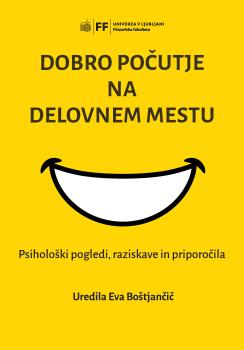School Counsellors on the Road to Burnout – Work Demands and Resources in Relation to Self-Efficacy in Counselling
Synopsis
Several studies have reported that counsellors in Slovenia are overworked, as more and more problems with children and adolescents are being identified and the work of the counselling service in schools is poorly regulated. In the present study, we wanted to investigate how work resources and work demands relate to self-efficacy, which is important for the counsellors’ experience of exhaustion. We were also interested in what counsellors themselves and their supervisors could do to improve self-efficacy, and what changes would be needed at the system level. We used a mixed-method approach, with the Work Demands and Work Resources Questionnaire and the Assessment and Management Self-Efficacy Scale in the quantitative part, and three open-ended questions in the qualitative part. A total of 230 participants took part in the study. We found that various work demands (inadequate tasks, ambiguity of the counsellors’ role, pressure from management, students’ problems, caseload), various work resources (support from colleagues, supervisors and mentors, school climate and culture, supervision, networking within and outside the organization, attitudes towards the counsellors, feedback, allowing autonomy), and some personal resources (self-efficacy, basic and additional education, years of experience) had a significant impact on counsellors’ overload. The survey touches on a very topical issue and provides some recommendations on how to prevent counsellors from undergoing such major work overload.
Downloads
Pages
Published
License

This work is licensed under a Creative Commons Attribution-ShareAlike 4.0 International License.


